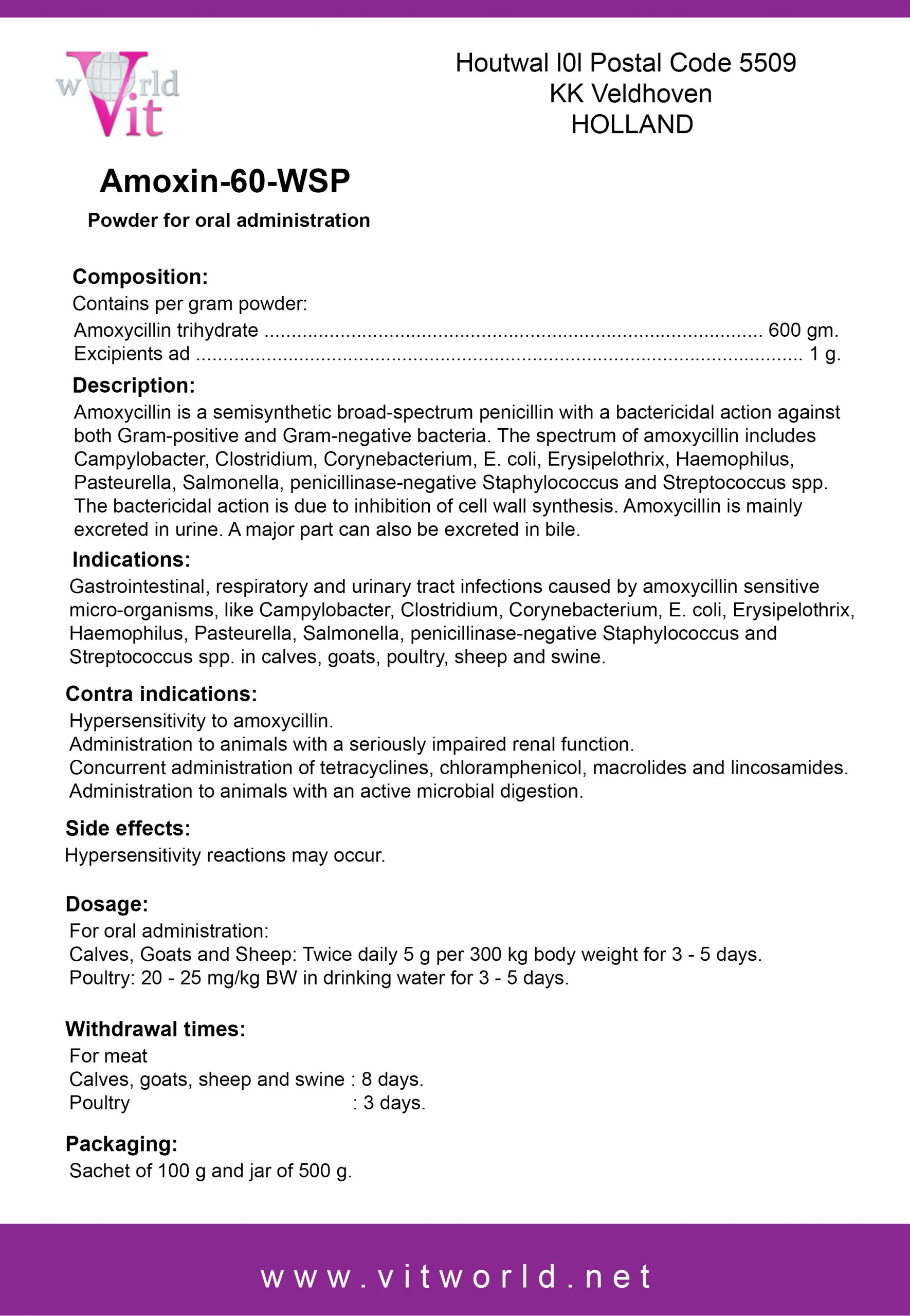| 600 mg. |
Amoxycillin trihydrate
|
| 1 g . | Excipients ad |
Amoxycillin is a semisynthetic broad-spectrum penicillin with a bactericidal action against both Gram-positive and Gram-negative bacteria. The spectrum of amoxycillin includes Campylobacter, Clostridium, Corynebacterium, E. coli, Erysipelothrix, Haemophilus, Pasteurella, Salmonella, penicillinase-negative Staphylococcus and Streptococcus spp. The bactericidal action is due to inhibition of cell wall synthesis. Amoxycillin is mainly excreted in urine. A major part can also be excreted in bile.
Gastrointestinal, respiratory and urinary tract infections caused by amoxycillin sensitive micro-
organisms, like Campylobacter, Clostridium, Corynebacterium, E. coli, Erysipelothrix, Haemophilus, Pasteurella, Salmonella, penicillinase-negative Staphylococcus and Streptococcus spp. in calves, goats, poultry, sheep and swine.
Hypersensitivity to amoxycillin.
Administration to animals with a seriously impaired renal function.
Concurrent administration of tetracyclines, chloramphenicol, macrolides and lincosamides. Administration to animals with an active microbial digestion.
Hypersensitivity reactions may occur.
For oral administration:
Calves, Goats and Sheep: Twice daily 5 g per 300 kg body weight for 3 – 5 days.
Poultry: 20 – 25 mg/kg BW in drinking water for 3 – 5 days.
Withdrawal times:
For meat
Calves, goats, sheep and swine : 8 days
Poultry : 3 days
Sachet of 100 g and jar of 500 g.
